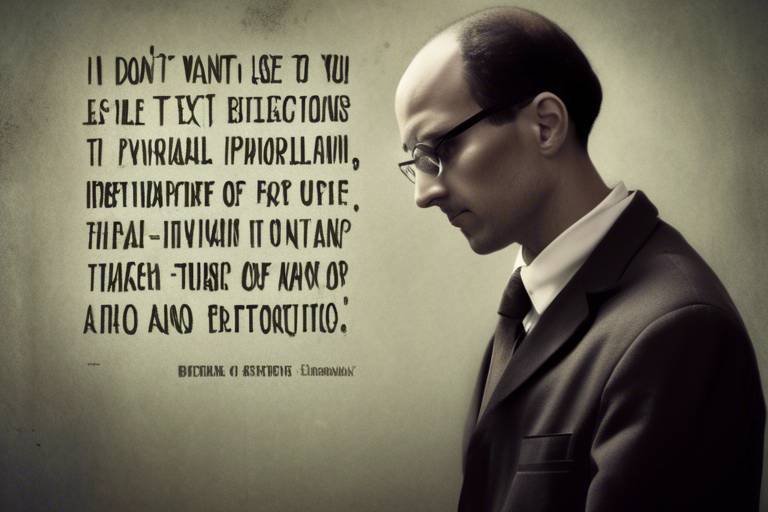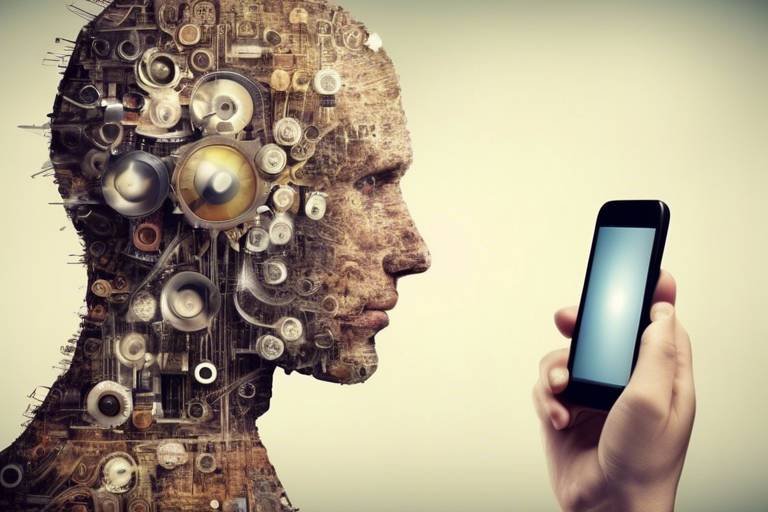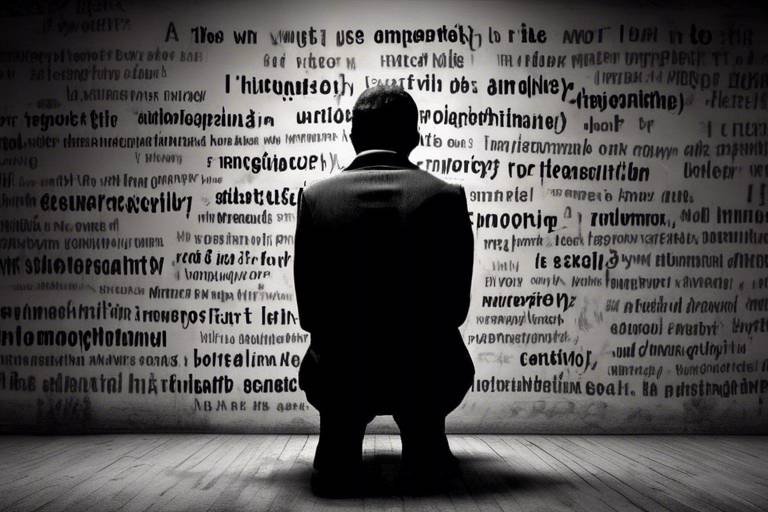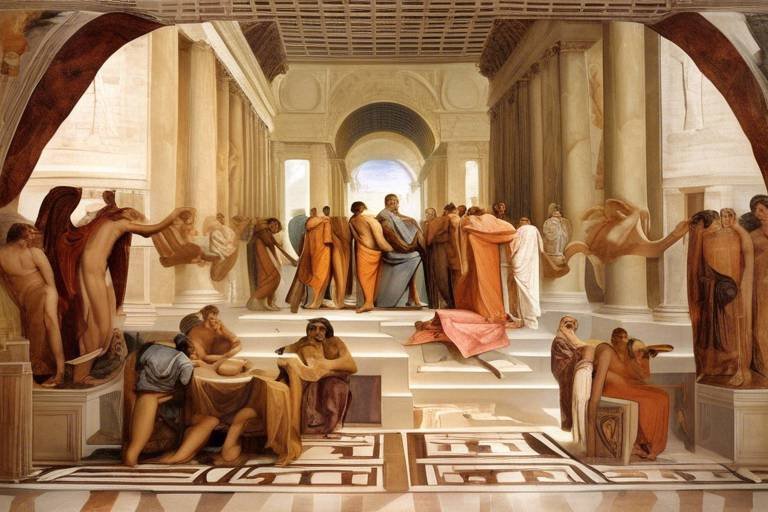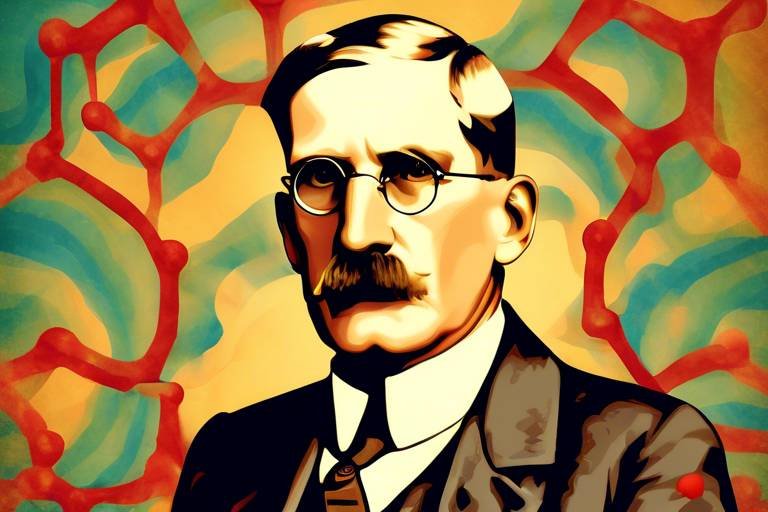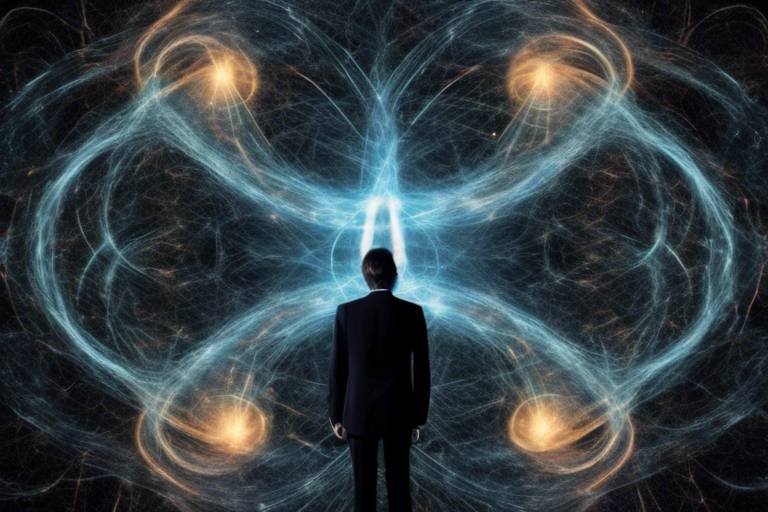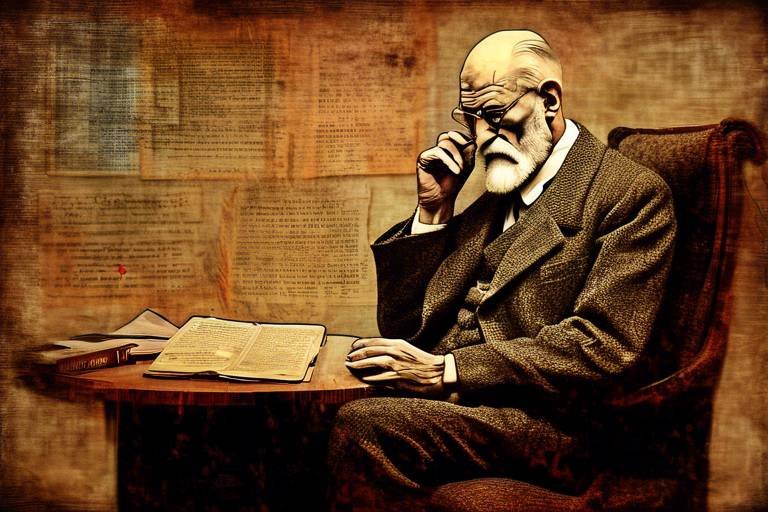Human Rights - A Philosophical Perspective
Human rights are often viewed as the bedrock of a just society, but what exactly are they? At their core, human rights are the fundamental rights and freedoms that belong to every individual, regardless of nationality, sex, ethnicity, or any other status. They are the essential guarantees that protect individuals from abuse and ensure dignity, liberty, and equality. This article explores the philosophical underpinnings of human rights, examining their origins, key theories, and implications for society. It aims to provide a comprehensive understanding of human rights from a philosophical standpoint, unraveling the intricate tapestry of ideas that have shaped our modern conception of rights.
To truly grasp the essence of human rights, we must first journey back in time to their historical roots. The concept of human rights is not a recent invention; it has evolved through centuries of philosophical thought and societal development. From the ancient civilizations of Mesopotamia, where codes of law began to emerge, to the Magna Carta in 1215, which laid the groundwork for individual rights against arbitrary power, each milestone has contributed to the rich history of human rights. The Enlightenment period brought forth revolutionary ideas, with thinkers advocating for the inherent dignity of the individual. Documents such as the U.S. Declaration of Independence and the French Declaration of the Rights of Man and of the Citizen further solidified the belief that certain rights are universal and inalienable.
As we delve deeper into the philosophical aspects of human rights, we encounter several major theories that provide different lenses through which to understand these rights. Each theory contributes to our understanding of justice and morality, shaping the discourse around what rights individuals should possess and why. Among these, natural law, social contract theory, and utilitarianism stand out as significant frameworks.
Natural law posits that human rights are not merely granted by governments or societies but are inherent to all individuals by virtue of their humanity. This perspective emphasizes that these rights are grounded in moral principles that transcend any legal system. Think of natural law as an unbreakable code written into the very fabric of our existence, asserting that every individual possesses certain rights simply by being human. This idea has profound implications, suggesting that even if a government fails to recognize these rights, they still exist and must be upheld.
The Enlightenment era was pivotal in shaping modern human rights discourse. Philosophers like John Locke and Jean-Jacques Rousseau argued passionately for the idea of individual rights and freedoms. Locke's theories on life, liberty, and property laid the groundwork for later democratic ideals, while Rousseau emphasized the social contract, where individuals agree to form a society that protects their rights. Their ideas challenged the status quo, advocating for a society that respects and nurtures the inherent dignity of each person.
Utilitarianism, on the other hand, presents a different angle on human rights. This ethical theory suggests that actions should be judged based on their consequences, specifically in terms of maximizing overall happiness. However, this can create a tension between the needs of the majority and the rights of the individual. For instance, if sacrificing one person's rights could lead to greater happiness for many, how do we navigate that moral dilemma? This question remains a critical point of discussion in ethical decision-making and human rights advocacy.
Social contract theory posits that human rights arise from an implicit agreement between individuals and the state. This framework suggests that individuals consent to surrender some freedoms in exchange for protection and the maintenance of order by the government. In essence, it’s like a handshake agreement: you give up a little bit of your freedom, and in return, you gain security and the assurance that your rights will be respected. This theory helps justify the existence of human rights, as it frames them as essential components of the social contract that binds society together.
International law plays a crucial role in codifying and enforcing human rights on a global scale. Treaties and organizations, such as the United Nations, work tirelessly to promote and protect these rights across borders. Through international agreements, nations commit to uphold standards that safeguard human dignity and freedom, creating a framework for accountability.
The Universal Declaration of Human Rights (UDHR) stands as a monumental document in the history of human rights, adopted by the United Nations in 1948. It outlines fundamental rights and freedoms that all individuals are entitled to, serving as a guiding principle for nations worldwide. The declaration emphasizes the importance of dignity, equality, and respect for all people, regardless of their circumstances.
Despite the robust frameworks in place, enforcing international human rights laws remains fraught with challenges. Political, cultural, and economic barriers often hinder the protection of rights globally. For instance, some governments may prioritize national security over individual freedoms, while cultural norms can clash with universal human rights standards. Addressing these challenges requires a concerted effort from the international community to advocate for and uphold human rights for everyone, everywhere.
- What are human rights? Human rights are fundamental rights and freedoms that belong to every person, ensuring dignity, liberty, and equality.
- Where do human rights come from? Human rights have historical roots in various philosophical and legal traditions, evolving over centuries through significant milestones.
- What is the Universal Declaration of Human Rights? The UDHR is a landmark document adopted by the UN in 1948, outlining the fundamental rights and freedoms to which all individuals are entitled.
- What challenges do human rights face today? Enforcement of human rights is challenged by political, cultural, and economic barriers that vary across different regions and contexts.

The Origins of Human Rights
The concept of human rights is not a modern invention; rather, it is a rich tapestry woven through the fabric of human history. To understand where we stand today, we must first take a journey back in time, exploring the ancient civilizations that laid the groundwork for our contemporary understanding of rights. From the **Code of Hammurabi** in Babylon, which established a form of justice that recognized certain rights, to the **Magna Carta**, which limited the powers of the monarchy in medieval England, these historical milestones have played a crucial role in shaping human rights as we know them.
In ancient Greece, philosophers like **Socrates**, **Plato**, and **Aristotle** began to discuss the nature of justice and the individual’s place in society. Their ideas sparked debates about the moral and ethical responsibilities of individuals and governments, setting the stage for later developments. The Roman Republic also contributed significantly, with its emphasis on citizenship and the rights that came with it, highlighting the idea that certain rights are inherent to all human beings.
As we move through the ages, the **Renaissance** and the **Enlightenment** periods brought about profound changes in thought. Thinkers like **John Locke** and **Jean-Jacques Rousseau** championed the idea that individuals possess **natural rights** that are not granted by any authority but are inherent to human existence. This philosophical shift was revolutionary, as it argued that the legitimacy of governmental power derives from the consent of the governed, and that individuals have the right to challenge authority when their rights are infringed upon.
The culmination of these ideas can be seen in the **American Declaration of Independence** and the **French Declaration of the Rights of Man and of the Citizen**. These documents not only articulated the rights of individuals but also served as a rallying cry for movements advocating for freedom and equality around the world. They marked a significant turning point in the recognition of human rights, emphasizing that these rights are universal and should be upheld for all people, regardless of their background or status.
In the 20th century, the horrors of two World Wars and the atrocities committed during the Holocaust led to a global reckoning. The international community recognized that a formal framework was necessary to protect human rights on a global scale. This resulted in the establishment of key documents and treaties, including the **Universal Declaration of Human Rights** (UDHR) in 1948, which serves as a cornerstone for the modern human rights movement. The UDHR outlined a comprehensive set of rights and freedoms that every individual is entitled to, regardless of nationality, ethnicity, or belief.
Today, the origins of human rights continue to influence contemporary discussions and debates. As we face new challenges—such as technological advancements, globalization, and cultural differences—the foundational principles established by our ancestors remind us of the importance of protecting and promoting human rights for all. It is a legacy that we must honor and uphold, ensuring that the rights of every individual are recognized and respected in an ever-changing world.

Key Philosophical Theories
The concept of human rights is not just a modern invention; it is deeply rooted in various philosophical theories that have evolved over centuries. Understanding these theories is crucial to grasping the essence of what human rights mean in our society today. From the ancient Greeks to contemporary thinkers, different philosophies have shaped our views on rights and justice. Let’s dive into the key philosophical theories that illuminate our understanding of human rights.
One of the foundational theories is natural law, which posits that human rights are inherent and universal. This perspective argues that rights are not merely granted by governments or societal norms but are intrinsic to all human beings. Natural law suggests that these rights stem from moral principles that transcend any legal framework. Imagine a world where rights are like the air we breathe; they exist regardless of whether someone acknowledges them. This idea has been influential in many legal systems around the globe, reinforcing the belief that certain rights are inalienable.
Delving deeper into natural law, we find that it has been championed by various philosophers throughout history. Thinkers like Thomas Aquinas argued that human beings possess a rational nature that inherently understands the concept of good and evil. This rationality, according to Aquinas, is what gives rise to natural rights. Thus, human rights are not just legal constructs but are grounded in our very nature as moral beings. This perspective serves as a reminder that respecting human rights is not just a legal obligation but a moral imperative.
The Enlightenment period introduced a wave of new ideas that significantly impacted human rights discourse. Philosophers such as John Locke and Jean-Jacques Rousseau argued for the importance of individual rights and freedoms. Locke, for instance, believed in the concept of life, liberty, and property as fundamental rights that should be protected by the government. Rousseau, on the other hand, emphasized the idea of the social contract, where individuals consent to form a society that respects their rights. These ideas laid the groundwork for many contemporary human rights frameworks, highlighting the importance of individual autonomy and the role of government in protecting those rights.
While natural law and Enlightenment thought emphasize individual rights, utilitarianism offers a different approach. This theory, rooted in the works of philosophers like Jeremy Bentham and John Stuart Mill, focuses on the greatest happiness principle. Utilitarianism suggests that the best actions are those that maximize overall happiness. However, this raises a critical question: at what cost do we pursue this happiness? The tension between maximizing collective well-being and protecting individual rights can lead to ethical dilemmas. For example, if sacrificing one person's rights leads to greater happiness for the majority, should that action be justified? This debate is crucial in discussions about human rights, as it challenges us to consider the balance between individual freedoms and the greater good.
Another significant theory in the realm of human rights is social contract theory, which posits that individuals consent to form a society and, in doing so, agree to abide by certain rules and norms. This theory emphasizes the mutual responsibilities between individuals and the state. The social contract serves as a foundation for understanding rights and duties, suggesting that human rights are not just privileges granted by authorities but are part of a larger agreement that ensures the protection of individuals within society. This perspective invites us to reflect on our roles as citizens and the obligations we have toward one another in upholding these rights.
In summary, the philosophical underpinnings of human rights are rich and complex. From natural law to social contract theory, these frameworks provide a lens through which we can examine the importance of human rights in our lives. They encourage us to consider not only the rights we possess but also the responsibilities we hold toward one another as members of a global community.
- What are human rights? Human rights are the basic rights and freedoms that belong to every person in the world, from birth until death.
- Why are philosophical theories important for understanding human rights? Philosophical theories provide the foundational concepts and frameworks that help us understand the nature, origin, and significance of human rights.
- How do different philosophical perspectives influence human rights? Different philosophical perspectives highlight various aspects of human rights, such as their universality, moral grounding, and the balance between individual rights and collective well-being.

Natural Law and Human Rights
The concept of natural law has long been a cornerstone in the philosophical foundation of human rights. At its core, natural law posits that certain rights are inherent to all human beings, derived not from laws or customs, but from our very nature. This idea suggests that every individual possesses fundamental rights simply by being human, which are universal and immutable. Think of natural law as the moral compass that guides humanity, transcending the boundaries of legal systems and cultural norms.
Historically, natural law has its roots in ancient philosophies, with thinkers like Aristotle and Cicero laying the groundwork for future discourse. They argued that there exist universal moral principles that govern human behavior. Fast forward to the Enlightenment, where philosophers such as John Locke and Thomas Hobbes further developed these ideas, advocating that individuals are entitled to life, liberty, and property. Locke famously declared that the protection of these rights is the primary purpose of government, cementing the link between natural law and the political framework of human rights.
One of the most compelling aspects of natural law is its assertion that human rights are not granted by any authority; rather, they are inherent and must be recognized and respected by societies and governments. This notion challenges the idea that rights can be arbitrarily revoked or altered by legislation. In essence, natural law serves as a reminder that human dignity is not contingent upon societal approval or legal recognition.
To illustrate the principles of natural law, consider the following key tenets:
- Universality: Natural rights apply to all humans, regardless of nationality, race, or creed.
- Inalienability: These rights cannot be surrendered or transferred; they are an intrinsic part of being human.
- Immutability: The rights do not change over time or with circumstances; they remain constant.
This philosophical perspective has profound implications for contemporary discussions surrounding human rights. For instance, when we consider issues like freedom of speech or the right to privacy, natural law provides a robust framework for arguing that such rights are not merely privileges bestowed by governments but are essential to our humanity. This can lead to heated debates, especially when state laws conflict with the principles of natural law. In such cases, advocates for human rights often invoke natural law to challenge unjust laws and demand accountability.
Moreover, the influence of natural law can be seen in various international human rights instruments, including the Universal Declaration of Human Rights. This document reflects the essence of natural law by asserting that all people are entitled to certain rights simply by virtue of being human, regardless of their legal status or societal conditions.
In conclusion, the relationship between natural law and human rights is pivotal in understanding the ethical and moral underpinnings of our rights. It emphasizes that human dignity should be at the forefront of any legal framework, urging societies to respect and protect the inherent rights of all individuals. As we navigate the complexities of modern governance and human rights advocacy, the principles of natural law remain a guiding light, reminding us of our shared humanity and the rights that come with it.
What is natural law?
Natural law is a philosophical theory suggesting that certain rights are inherent and universal, derived from human nature rather than societal laws.
How does natural law relate to human rights?
Natural law provides a foundation for human rights by asserting that these rights are inherent to all individuals, regardless of legal or cultural contexts.
Who are some key philosophers associated with natural law?
Key philosophers include Aristotle, Cicero, John Locke, and Thomas Hobbes, who contributed significantly to the development of natural law theory.
Can natural rights be taken away?
According to natural law, these rights are inalienable, meaning they cannot be surrendered or revoked by any authority.

The Influence of Enlightenment Thinkers
The Enlightenment era, spanning the 17th and 18th centuries, was a time of remarkable intellectual growth and transformation. During this period, thinkers like John Locke, Jean-Jacques Rousseau, and Immanuel Kant emerged, challenging traditional notions of authority and governance. They laid the groundwork for modern human rights by emphasizing the importance of individual liberty, equality, and the inherent dignity of every person. These philosophers argued that human rights are not merely privileges granted by governments but are inherent to all individuals by virtue of their humanity.
Take John Locke, for example. His theories on natural rights profoundly influenced the development of human rights. Locke posited that individuals possess rights to life, liberty, and property, which he believed were derived from natural law. This idea was revolutionary; it suggested that the government's role is to protect these rights rather than to infringe upon them. Locke's thoughts can be summarized in the following key points:
- Natural Rights: Rights that are inherent and cannot be surrendered or transferred.
- Consent of the Governed: Governments derive their authority from the consent of the people.
- Right to Revolution: If a government fails to protect the rights of its citizens, they have the right to overthrow it.
Moving on to Rousseau, his concept of the "social contract" further enriched the discourse on human rights. Rousseau argued that individuals come together to form a collective society, agreeing to abide by the general will for the common good. This notion emphasizes that while individuals may sacrifice some freedoms for the sake of societal harmony, their fundamental rights must still be preserved. Rousseau’s ideas suggest that true freedom is found not in isolation but within a community that respects and upholds the rights of all its members.
Immanuel Kant also played a crucial role in shaping human rights philosophy. He introduced the concept of categorical imperative, which asserts that individuals should act according to maxims that could be universally applied. This philosophical stance places a strong emphasis on treating each person with respect and dignity, reinforcing the idea that human rights are universal and should be upheld by all. Kant's moral framework suggests that rights are not just legal constructs but are rooted in ethical obligations that transcend cultural and legal boundaries.
In summary, the Enlightenment thinkers contributed significantly to the philosophical foundations of human rights. Their ideas continue to resonate in contemporary discussions, reminding us that the pursuit of justice and equality is an ongoing journey. The principles they championed serve as a guiding light, urging societies to recognize and protect the inherent rights of every individual. As we reflect on their influence, it's essential to consider how their legacies shape our understanding of rights today and challenge us to advocate for a more just world.
- What are human rights? Human rights are fundamental rights and freedoms to which all individuals are entitled, regardless of nationality, sex, ethnicity, or religion.
- Who were the key Enlightenment thinkers? Key Enlightenment thinkers include John Locke, Jean-Jacques Rousseau, and Immanuel Kant, who contributed significantly to the development of human rights philosophy.
- How did Enlightenment ideas influence modern human rights? Enlightenment ideas emphasized individual liberty, equality, and the inherent dignity of every person, laying the groundwork for contemporary human rights discourse.

Utilitarian Perspectives
Utilitarianism, at its core, is a philosophical framework that evaluates the morality of actions based on their outcomes. The fundamental principle of utilitarianism is simple: the best action is the one that maximizes overall happiness or utility. When we apply this perspective to human rights, things get a bit tricky. On one hand, utilitarianism offers a compelling argument for the protection of rights by emphasizing the importance of collective well-being; on the other hand, it raises some ethical dilemmas regarding individual rights.
Imagine a scenario where a government must decide whether to infringe upon the rights of a minority group to benefit the majority. A strict utilitarian might argue that if the majority's happiness increases significantly by sacrificing the minority's rights, then it could be justified. This line of reasoning can lead to a slippery slope where the rights of individuals are compromised for the sake of the greater good. It's a bit like saying, "If we all agree to ignore the needs of a few, we can all enjoy a bigger cake." But is that really fair? Shouldn't the rights of everyone be protected, regardless of the majority's desires?
Utilitarianism also challenges us to think about the long-term effects of our actions. For instance, if violating human rights leads to unrest and a breakdown of social trust, the initial happiness gained might be overshadowed by the long-term consequences. This brings us to a key aspect of utilitarian thought: the importance of considering both immediate and future impacts when making ethical decisions. Just as a pebble thrown into a pond creates ripples, our actions can have far-reaching effects that extend beyond the moment.
Moreover, utilitarianism encourages us to evaluate the distribution of happiness. A society that prioritizes the happiness of a few over the many may create a system where inequalities flourish. This is where the concept of negative rights comes into play—these are rights that require others (especially the state) to abstain from interfering with individual freedoms. For example, the right to free speech is a negative right; it requires others not to act in ways that would silence an individual. Utilitarianism must grapple with the challenge of ensuring that the pursuit of happiness does not come at the expense of these fundamental rights.
In summary, while utilitarianism provides a valuable lens through which to view human rights, it also poses significant challenges. The balance between maximizing collective happiness and protecting individual rights is a tightrope walk that requires careful consideration. As we navigate this complex terrain, it is essential to remember that the essence of human rights is to safeguard the dignity and freedom of every individual, ensuring that no one is left behind in the pursuit of happiness.
- What is utilitarianism? Utilitarianism is a philosophical theory that suggests that the best action is the one that maximizes overall happiness or utility.
- How does utilitarianism relate to human rights? Utilitarianism can both support and challenge the protection of human rights, as it weighs the happiness of the majority against the rights of individuals.
- What are negative rights? Negative rights are those that require others, particularly the state, to abstain from interfering with individual freedoms, such as the right to free speech.
- Can utilitarianism justify violating human rights? While some utilitarians may argue that sacrificing individual rights for the greater good can be justified, this raises ethical concerns about fairness and justice.

Social Contract Theory
The concept of is a cornerstone in understanding the relationship between individuals and the state. At its core, this theory posits that individuals consent, either explicitly or implicitly, to surrender some of their freedoms and submit to the authority of a governing body in exchange for protection of their remaining rights. Think of it as a grand agreement where everyone plays their part to ensure peace and security in society. This idea has been a pivotal element in philosophical discussions about human rights, as it provides a framework for justifying the existence of these rights within the context of governance.
Historically, Social Contract Theory has roots in the works of several key philosophers, each contributing their unique perspectives. For instance, Thomas Hobbes viewed the social contract as a necessary mechanism to escape a state of nature characterized by chaos and violence. In his famous work, Leviathan, Hobbes argued that individuals, in their quest for self-preservation, would agree to a social contract that grants absolute power to a sovereign authority. This, he believed, was essential to maintain order and prevent the anarchy of the natural state.
On the other hand, John Locke offered a more optimistic view. He believed that the social contract was rooted in the protection of natural rights—life, liberty, and property. Locke argued that individuals enter into a social contract to safeguard these rights, and if a government fails to do so, the people have the right to revolt. This perspective laid the groundwork for modern democratic principles and the idea that governments are accountable to the governed.
Another significant thinker, Jean-Jacques Rousseau, took a different approach. In his work The Social Contract, Rousseau emphasized the importance of the collective will of the people, or the "general will." He believed that true freedom is found not in the absence of restraint but in the adherence to laws that one has a role in creating. According to Rousseau, individuals achieve authenticity and moral integrity by participating in the collective decision-making process, thus ensuring that their rights are respected and upheld.
In essence, Social Contract Theory serves as a bridge between individual rights and collective responsibilities. It highlights that while individuals possess inherent rights, these rights are best protected within a structured society where laws and governance are established through mutual consent. This raises the question: how do we ensure that the social contract remains valid and that the rights of individuals are not trampled upon by the very authority meant to protect them?
To illustrate the evolution of Social Contract Theory and its implications for human rights, consider the following table that summarizes the views of key philosophers:
| Philosopher | View on Social Contract | Key Work |
|---|---|---|
| Thomas Hobbes | Absolute authority is necessary to prevent chaos. | Leviathan |
| John Locke | Government must protect natural rights; otherwise, rebellion is justified. | Two Treatises of Government |
| Jean-Jacques Rousseau | True freedom comes from adherence to laws created by the collective will. | The Social Contract |
As we navigate the complexities of modern governance and the protection of human rights, the principles of Social Contract Theory remain relevant. They remind us that rights are not simply granted by the state; rather, they are inherent to our humanity and must be actively safeguarded through our participation in the social contract. This understanding compels us to question and engage with our governments, ensuring that the rights we cherish are not only recognized but also upheld in practice.
- What is Social Contract Theory? - It is a philosophical concept that explains the relationship between individuals and the state, based on mutual consent for protection and order.
- Who are the key philosophers associated with Social Contract Theory? - Major figures include Thomas Hobbes, John Locke, and Jean-Jacques Rousseau, each offering different perspectives on the nature of the contract.
- How does Social Contract Theory relate to human rights? - It provides a framework for understanding how individual rights are protected within a society governed by laws and agreements.
- Can individuals challenge the social contract? - Yes, if a government fails to protect the rights of its citizens, individuals have the right to challenge and change that government.

The Role of International Law
International law serves as a crucial framework for the protection and promotion of human rights across the globe. It acts like a global compass, guiding nations towards recognizing and upholding the inherent dignity of every individual. As we delve into this topic, it's essential to understand that international law is not merely a collection of treaties and agreements; rather, it embodies the collective aspirations of humanity to ensure justice, equality, and freedom for all. The evolution of international law has been significantly influenced by various historical events and movements, leading to the establishment of several key treaties and organizations dedicated to safeguarding human rights.
One of the most significant milestones in the realm of international human rights law is the Universal Declaration of Human Rights (UDHR), adopted by the United Nations General Assembly in 1948. This groundbreaking document outlines a broad range of rights that are universally applicable to all people, regardless of nationality, ethnicity, or religion. It acts as a foundational text, influencing numerous national constitutions and international treaties. The UDHR is often heralded as a beacon of hope, illuminating the path towards a more just and equitable world.
International law also encompasses various treaties that aim to protect specific rights. For instance, the International Covenant on Civil and Political Rights (ICCPR) and the International Covenant on Economic, Social and Cultural Rights (ICESCR) are two pivotal documents that build upon the principles established in the UDHR. These covenants delineate the rights that individuals should enjoy and outline the obligations of states to respect, protect, and fulfill these rights. Moreover, regional human rights instruments, such as the European Convention on Human Rights and the African Charter on Human and Peoples' Rights, further enhance the legal framework for human rights protection.
However, while international law provides a robust structure for advocating human rights, its enforcement remains a complex challenge. The effectiveness of international human rights law is often hampered by various factors, including political will, cultural differences, and economic constraints. Many nations may ratify treaties but fail to implement them adequately, leading to a gap between legal commitments and actual practices. For instance, a country may recognize the right to free speech in its constitution but still impose restrictions that undermine this right in practice.
To illustrate the challenges faced in the enforcement of international human rights laws, consider the following table:
| Challenges | Description |
|---|---|
| Political Barriers | Governments may prioritize national interests over human rights obligations, leading to non-compliance. |
| Cultural Resistance | Some cultures may have differing views on human rights, leading to conflicts with international norms. |
| Economic Constraints | Poverty and lack of resources can hinder a state's ability to fulfill its human rights obligations. |
Despite these challenges, the role of international law in promoting human rights cannot be understated. It provides a platform for individuals and organizations to advocate for justice and accountability. Non-governmental organizations (NGOs) play a vital role in this landscape, often acting as watchdogs that hold governments accountable for their human rights commitments. By documenting abuses and raising awareness, these organizations contribute to a culture of accountability that is essential for the protection of human rights.
In conclusion, while international law may not be a panacea for all human rights issues, it is an indispensable tool in the ongoing struggle for justice and equality. As we continue to navigate the complexities of our global society, the importance of international law in safeguarding human rights remains ever clear. It is a reminder that, despite our differences, we are united by our shared humanity and the fundamental rights that belong to each of us.
- What is the Universal Declaration of Human Rights?
The UDHR is a foundational document adopted by the United Nations in 1948 that outlines the basic rights and freedoms to which all individuals are entitled.
- How does international law protect human rights?
International law provides a framework through treaties and conventions that obligate states to respect, protect, and fulfill human rights.
- What are some challenges to enforcing international human rights laws?
Challenges include political barriers, cultural resistance, and economic constraints that can hinder a state's compliance with human rights obligations.

Universal Declaration of Human Rights
The Universal Declaration of Human Rights (UDHR) stands as a monumental milestone in the history of human rights, adopted by the United Nations General Assembly on December 10, 1948. This document is not merely a collection of rights; it is a profound declaration that encapsulates the aspirations of humanity for freedom, justice, and peace. Imagine a world where everyone is treated with dignity and respect—this is the vision the UDHR aims to realize. It serves as a common standard for all nations, urging them to uphold the fundamental rights of every individual, regardless of their background.
Comprising 30 articles, the UDHR outlines a broad range of rights that are inherent to all human beings. These rights include civil, political, economic, social, and cultural rights, reflecting the diverse needs and aspirations of people worldwide. For instance, Article 1 states that "All human beings are born free and equal in dignity and rights." This simple yet powerful assertion lays the groundwork for the entire document, emphasizing that no one is above another and that equality is a fundamental principle.
One of the remarkable features of the UDHR is its universality. It asserts that the rights enshrined within its articles are applicable to everyone, everywhere. This universality is crucial because it challenges the notion that cultural or national differences can justify the violation of human rights. However, the challenge remains: how do we ensure these rights are respected and enforced across different contexts? The UDHR provides a framework, but the real work lies in implementation and advocacy.
To illustrate the significance of the UDHR, let's consider a few key articles:
| Article | Summary |
|---|---|
| Article 3 | Everyone has the right to life, liberty, and security of person. |
| Article 19 | Everyone has the right to freedom of opinion and expression. |
| Article 27 | Everyone has the right to participate in the cultural life of the community. |
These articles highlight just a fraction of the rights that the UDHR champions. They resonate deeply in today's society, where issues of freedom, security, and cultural participation are more relevant than ever. However, despite its noble intentions, the UDHR is not legally binding. This means that while it sets a standard, it relies on nations to adopt and implement these rights into their own legal systems. The gap between the declaration and reality often leads to disheartening outcomes, where violations persist despite the existence of such a powerful document.
Moreover, the UDHR has sparked a plethora of international treaties and laws aimed at protecting human rights. These include the International Covenant on Civil and Political Rights and the International Covenant on Economic, Social and Cultural Rights, both of which build upon the principles laid out in the UDHR. Yet, the journey towards universal human rights is fraught with challenges. Political, cultural, and economic barriers can hinder the enforcement of these rights, making it imperative for advocates and organizations to remain vigilant and proactive.
In conclusion, the Universal Declaration of Human Rights is not just a historical artifact; it is a living document that continues to inspire movements for justice and equality around the globe. Its principles remind us that every individual deserves respect, dignity, and the opportunity to live a fulfilling life. As we navigate the complexities of modern society, embracing the values of the UDHR is essential for fostering a world where human rights are truly universal.
- What is the purpose of the Universal Declaration of Human Rights? The UDHR aims to set a common standard of rights for all people, promoting dignity, freedom, and justice.
- Is the UDHR legally binding? No, the UDHR is not legally binding, but it serves as a foundation for international human rights laws.
- How does the UDHR impact global human rights? The UDHR influences national laws and policies, encouraging countries to adopt human rights protections.

Challenges to Enforcement
The enforcement of human rights is a complex and multifaceted issue that often resembles navigating a minefield. While the existence of international laws and treaties aimed at protecting human rights is a significant step forward, the reality is that many countries struggle to implement these ideals effectively. Why is it so challenging? Let's dive into some of the key barriers that hinder the enforcement of human rights globally.
One of the most pressing issues is the political landscape in various countries. In many cases, governments may be reluctant to uphold human rights standards due to fears that doing so could undermine their authority or lead to political instability. For instance, in authoritarian regimes, dissent is often met with harsh consequences, creating an environment where human rights are not only neglected but actively suppressed. This leads to a chilling effect where individuals are afraid to speak out or seek justice.
Moreover, cultural factors play a significant role in the enforcement of human rights. Different societies have varying interpretations of what constitutes a human right. For example, in some cultures, collective rights may be prioritized over individual rights, leading to a clash with international human rights norms that emphasize individualism. This cultural divergence can create friction and complicate the implementation of universal rights.
Economic barriers also pose substantial challenges. Many nations, particularly developing ones, may lack the resources necessary to enforce human rights effectively. This can manifest in inadequate legal frameworks, insufficient training for law enforcement, or a lack of funding for social programs that promote equality and justice. Without the right resources, even the best intentions can fall flat.
In addition to these challenges, the global geopolitical climate can significantly affect human rights enforcement. Countries may prioritize diplomatic relations or economic interests over human rights issues, leading to a lack of accountability for nations that violate these rights. For example, powerful nations may turn a blind eye to human rights abuses in countries that are important trade partners, creating a double standard in the enforcement of human rights.
To illustrate the interplay of these challenges, consider the following table, which outlines various barriers to human rights enforcement along with potential solutions:
| Challenges | Potential Solutions |
|---|---|
| Political Resistance | Encouraging civil society engagement and promoting democratic governance. |
| Cultural Differences | Fostering intercultural dialogue to bridge understanding and respect for universal rights. |
| Economic Constraints | International aid and support for capacity-building in developing nations. |
| Geopolitical Interests | Establishing international accountability mechanisms that prioritize human rights. |
In conclusion, while the framework for human rights exists, the path to effective enforcement is fraught with challenges. Addressing these barriers requires a concerted effort from the international community, governments, and civil society. Only by confronting these issues head-on can we hope to create a world where human rights are not just aspirational but a lived reality for everyone.
- What are the main challenges to enforcing human rights? The main challenges include political resistance, cultural differences, economic constraints, and geopolitical interests.
- How can international law help in enforcing human rights? International law provides a framework for accountability, establishing norms that countries are expected to follow.
- Why do some countries ignore human rights? Countries may ignore human rights due to a variety of reasons, including political instability, cultural beliefs, or economic limitations.
- What role does civil society play in human rights enforcement? Civil society plays a crucial role in advocating for human rights, raising awareness, and holding governments accountable.
Frequently Asked Questions
- What are human rights?
Human rights are fundamental rights and freedoms that belong to every person, regardless of nationality, sex, ethnicity, or any other status. They are inherent to all human beings and are essential for living with dignity, freedom, and justice.
- Where did the concept of human rights originate?
The concept of human rights has its roots in various ancient civilizations, but it gained significant traction during the Enlightenment period. Philosophers like John Locke and Jean-Jacques Rousseau laid the groundwork for modern human rights by emphasizing individual rights and social contracts.
- What are the key philosophical theories related to human rights?
Key philosophical theories include natural law, which posits that human rights are inherent and universal; social contract theory, which focuses on the agreement between individuals and the state regarding rights; and utilitarianism, which evaluates actions based on their consequences for overall happiness.
- How does international law protect human rights?
International law codifies human rights through various treaties and agreements, such as the Universal Declaration of Human Rights. These legal frameworks aim to promote and protect human rights globally, holding nations accountable for their treatment of individuals.
- What is the Universal Declaration of Human Rights?
The Universal Declaration of Human Rights (UDHR) is a landmark document adopted by the United Nations in 1948. It outlines fundamental human rights that should be universally protected and serves as a foundation for international human rights law.
- What challenges exist in enforcing human rights?
Enforcing human rights faces numerous challenges, including political resistance, cultural differences, and economic constraints. These factors can hinder the effective implementation of international human rights laws and the protection of individuals' rights.


